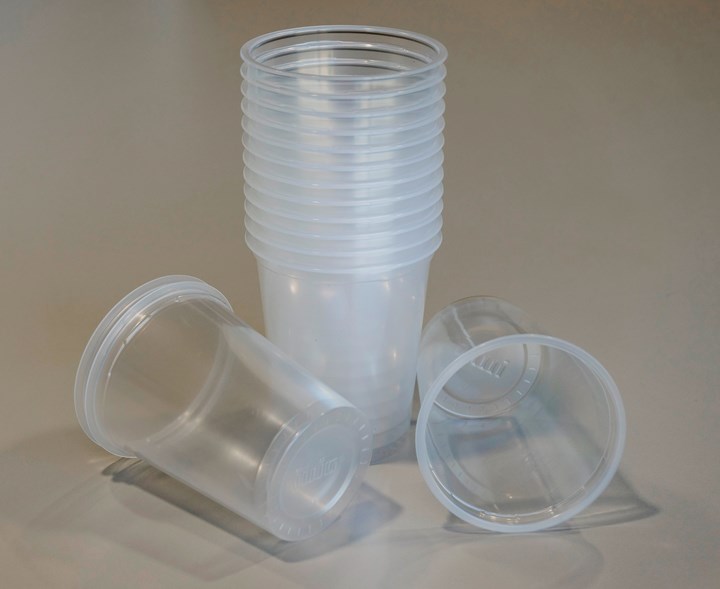PP from Renewable Raw Materials as a Drop-In Solution with CO2 Advantage
Illig, LyondellBasell, Fernholz and Neste have demonstrates this with production of yogurt cups from PP with a measurable renewable content.
In a joint project last year, and highlighted at K 2022, the four companies Illig, LyondellBasell Industries(LBI), Fernholz and Neste demonstrated that the use of renewable raw materials is not only possible with existing infrastructure, but also without compromising the quality of the end products. The project entailed the production of conventional yogurt cups made for PP with a measurable renewable content. Neste provided the renewable base raw material for the production of renewable PP and LBI produced the renewable PP. Fernholz processed the renewable PP pellets into films, and Illig produced the thermoformed cups on its equipment.

The basic raw material for the feasibility study was 100% renewable Neste RE-- hydrocarbons produced from renewable raw materials such as waste and residual oils and fats, including cooking oils or residual materials from vegetable oil production. The renewable hydrocarbons were used in a next step by LBI to produce PP. LBI’s goal is to produce 4.4. billion lb/yr of recycled and renewable polymers by 2030. Since 2021, the company has been producing PP and PE from renewable feedstocks on a commercial scale via both mass balancing and measurable C14 (Certified Carbon 14) content as part of its Circulen portfolio.
The PP resins were processed at next step into PP sheet at the Fernholz plant. The extrusion equipment was the latest "high-speed" extruder type and state-of-the-art roll-stack technology, which were operated with identical parameters such as temperatures, output, etc. for fossil and biobased CirculenRenew resin with a focus to use standard process conditions to ensure comparability with regular production. In the extruder part, the resins were processed into plastic melt at over 392 F 200 degrees Celsius and converted into sheet with a dimension of 0.047 in. x 28.47 in. During extrusion, relevant process parameters were monitored and the regular QA procedures were carried out. No differences were found between sheet based on fossil PP resources and sheet based on biobased CirculenRenew PP.
Illig used an RDM 73K production machine and a 30-cavity cup production mold werfor sample production to produce a 200ml (7 oz.) yogurt cup. The cycle rate was 29 cycles/min. A PP film made from fossil raw materials with the same dimensions was used as a comparison to the renewable CirculenRenew film. The focus was to look at thermoformability, shrinkage, stack height, top load, and wall thickness distribution of the cup patterns. The mold shrinkage was measured with an optical test rig, the stack height was measured mechanically after internal testing. Illig carried out the Top Load with a 2.5kN material testing machine according to DIN 55440. The wall thickness distribution was determined with a ball gauge at several positions.
As a result, both films, based on renewable and fossil raw materials, could be thermoformed with identical machine parameters. The obtained cup characteristics were extremely similar, so that no significant deviations were measurable. With regard to thermoforming, the two PP grades investigated can therefore be regarded as identical.
Related Content
-
Lanxess and DSM Engineering Materials Venture Launched as ‘Envalior’
This new global engineering materials contender combines Lanxess’ high-performance materials business with DSM’s engineering materials business.
-
Prices for All Volume Resins Head Down at End of 2023
Flat-to-downward trajectory for at least this month.
-
Melt Flow Rate Testing–Part 1
Though often criticized, MFR is a very good gauge of the relative average molecular weight of the polymer. Since molecular weight (MW) is the driving force behind performance in polymers, it turns out to be a very useful number.








.png;maxWidth=300;quality=90)






